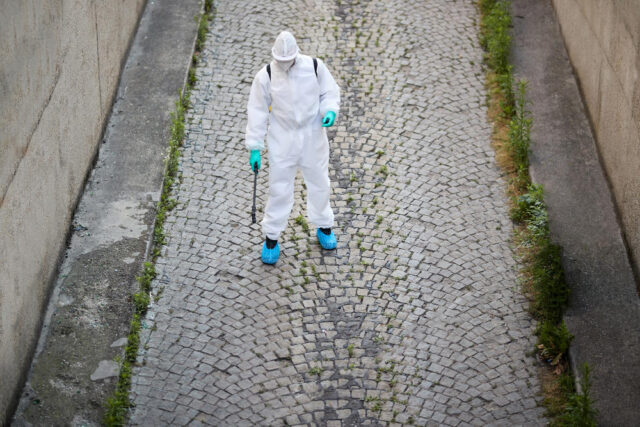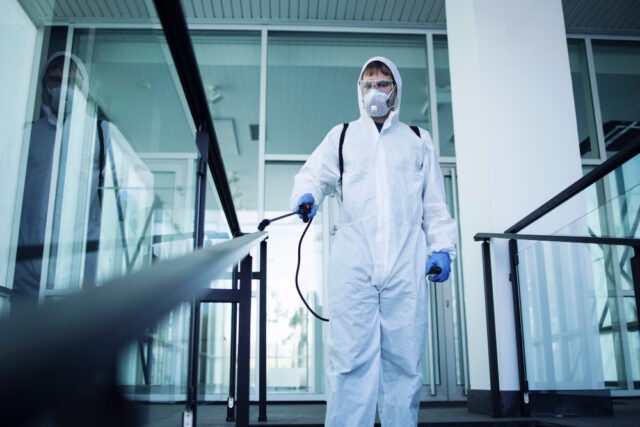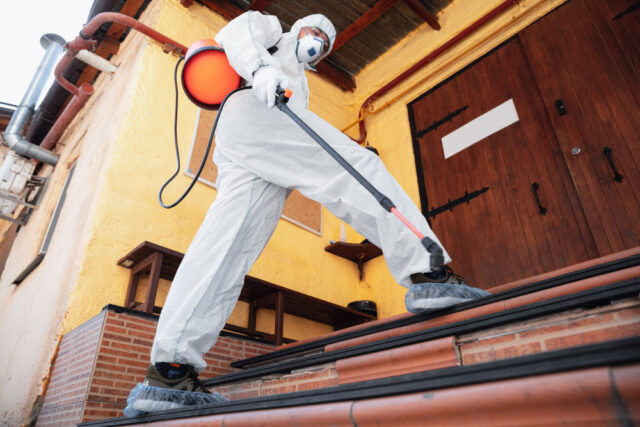
Let’s face it, managing a property is no walk in the park. Between tenant demands, maintenance issues, and the never-ending paperwork, you’ve got your hands full. And just when you think you’ve got it all under control, a new challenge scurries its way in – pests. As a property manager, pest control is one of those make-or-break issues. Get it right, and your tenants sing your praises. Get it wrong, and well, let’s just say things can get pretty uncomfortable, pretty fast.
But here’s the kicker – effective pest management in apartments isn’t just about keeping the critters at bay. It’s about striking a delicate balance between cost and efficiency. We’ve all been there, weighing the options: Do I go for the budget-friendly solution that might not be as effective? Or do I splurge on a top-tier service that’ll blow my maintenance budget? It’s the classic property management conundrum.

Understanding the Scope of Pest Management
First things first, let’s talk about what pest management really entails. It’s not just about the occasional bug spray. We’re talking about a comprehensive approach to prevent, identify, and control pest infestations in a way that minimises risks to human health, property, and the environment. Sounds like a tall order, right?
But here’s the thing – pests are more than just a nuisance. They’re a threat to your property’s integrity and your tenants’ well-being. Rodents can gnaw through wires, risking electrical fires. Termites can silently eat away at the structure of your building. And let’s not even start on the health hazards posed by cockroaches and bed bugs. As a property manager, you’re not just dealing with pests; you’re safeguarding your property and those who inhabit it.
The Cost Factor
Now, let’s dive into the cost aspect. The truth is, skimping on pest control can cost you more in the long run. Imagine this: You opt for the cheapest service, thinking you’ve saved a few bucks. But low-and-behold, a few weeks later, the pests are back with a vengeance. You’re not just back to square one; you’re now dealing with a full-blown infestation, disgruntled tenants, and potentially, damage to your reputation.
Investing in a quality pest management service is not just about immediate pest elimination. It’s about long-term prevention. A good service provider won’t just treat the symptoms; they’ll look for the cause. They’ll inspect your property, identify potential problem areas, and implement strategies to prevent future infestations. This proactive approach can save you money over time by avoiding more severe infestations and the accompanying hefty treatment costs.

Efficiency and Effectiveness
But it’s not just about spending more; it’s about spending smart. An efficient pest management strategy is one that gets the job done with minimal disruption to your tenants and your daily operations. This is where the expertise of a professional pest control service becomes invaluable. They know what works and what doesn’t, what’s safe and what’s harmful. They bring a level of expertise and precision that DIY methods or budget services simply can’t match.
Think of it this way: Every property is unique, with its own set of challenges and vulnerabilities. A one-size-fits-all approach just won’t cut it. You need a service that tailors their strategy to your specific needs. Maybe your property is more prone to rodent issues, or perhaps it’s located in an area with a high termite risk. A professional service will assess these factors and implement a targeted approach, thereby maximising efficiency and effectiveness.
The Balancing Act
So, how do you balance cost and efficiency? The key is to view pest management as an investment rather than an expense. When evaluating service providers, look beyond the price tag. Consider their track record, their approach to pest management, and the comprehensiveness of their service. Are they offering just a quick fix, or are they committed to long-term prevention? Are they using safe, environmentally friendly methods? Do they provide regular follow-ups and inspections?
Remember, the goal is not just to eliminate pests but to create a safe, healthy, and comfortable environment for your tenants. This requires a service that’s thorough, reliable, and, above all, effective. Yes, it might cost a bit more upfront, but the peace of mind and long-term savings are well worth it.

Navigating the Options
Now that we’ve established the importance of balancing cost and efficiency, let’s explore the options available to property managers. There are a myriad of pest control services out there, each promising the best results at the most competitive prices. But how do you sift through the marketing jargon and find a service that truly delivers?
It begins with understanding your property’s specific needs. If you’re managing a multi-unit apartment complex, your needs will be different from those of a single-family rental property. High-traffic areas like communal laundries or garbage disposal zones might need more frequent attention. Start by conducting a thorough assessment of your property to identify high-risk areas and common pest issues. This assessment forms the foundation of your pest management strategy.
Once you’ve got a clear picture of your needs, it’s time to compare services. Don’t just go for the first company that pops up in your search results. Do your homework. Look for pest control services with solid reputations, positive reviews, and preferably, experience in dealing with properties similar to yours. Reach out to them, ask questions, and get detailed quotes. Remember, transparency is key. A reputable company will be upfront about their methods, products, and costs.
Tailoring the Approach
Customization is crucial in effective pest management. A good pest control service will offer a tailored approach, considering factors like the size of your property, the extent of the infestation, and any specific concerns you or your tenants might have. For instance, if you have families with young children or pets, you’ll want a service that uses safe, non-toxic treatments.
This tailored approach also means regular monitoring and follow-ups. The best pest management is proactive, not reactive. Regular inspections can catch potential issues before they become major problems, saving you both headaches and costs down the line.

Leveraging Technology
Advancements in technology have revolutionised pest management. Today, there are more efficient and effective ways to tackle pest issues than ever before. From infrared scanners that detect termite activity to bait stations that monitor rodent populations, modern pest control services use a range of high-tech tools. These technologies not only improve the effectiveness of treatments but also reduce the need for invasive and disruptive methods, making the process less intrusive for your tenants.
Tenant Cooperation: A Key Factor
An often-overlooked aspect of pest management is tenant cooperation. Your efforts will be futile if the tenants are not on board. Educate your tenants about best practices in pest prevention – like proper garbage disposal, food storage, and reporting issues promptly. Consider creating a simple guide or organising a brief informational meeting. When tenants understand their role in keeping pests at bay, they become your allies in this ongoing battle.

Cost vs. Value
When evaluating the cost of pest management services, consider the value they bring. It’s not just about the price you pay but the benefits you gain – a pest-free environment, satisfied tenants, and a well-maintained property. Sometimes, paying a bit extra for a service that offers comprehensive, long-term solutions is more cost-effective than opting for a cheaper, less thorough option.
Sustainable Practices
Sustainability is another factor to consider. Eco-friendly pest control methods are not only better for the environment but also for the health and safety of your tenants. Look for services that use green practices and products. This not only helps in maintaining a healthy environment but can also be a selling point for environmentally conscious tenants.

Conclusion
Balancing cost and efficiency in pest management is about making informed decisions. It’s about investing in quality services that offer tailored, effective, and sustainable solutions. As a property manager, your aim should be to provide a safe and comfortable living environment for your tenants while maintaining the integrity of your property. Choosing the right pest management service is a crucial part of achieving this goal. By prioritising long-term value over short-term savings, you can ensure both the satisfaction of your tenants and the longevity of your property.









